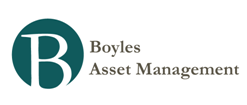Money and Finance
- Econtalk: Cochrane On Education And Moocs
Link to podcast: Cochrane on Education and MOOCsJohn Cochrane of the University of Chicago talks to EconTalk host Russ Roberts about the experience of teaching a massive open online course (MOOC)--a class delivered over the internet available to...
- The Barbarians Are At The Gate! Of Universities, Moats And Disruption! - By Aswath Damodaran
Link to: The barbarians are at the gate! Of universities, moats and disruption!In my last post, I attempted to break down the bundled product that comprises a college education into its component parts, and closed by arguing that the future of universities...
- Openstax College
This is pretty interesting. It’s innovation in education. And the time is right. OpenStax College offers students free textbooks that meet scope and sequence requirements for most courses. These are peer-reviewed texts written by professional content...
- Flipping Med Ed
To help medical students progress faster and find their calling in the field, two educators suggest moving content delivery out of the classroom may be the way to bring the students back in. The plan, featured in the October edition of Academic Medicine,...
- Bill Gates On His Foundation's Health And Education Campaigns
What have you learned so far about MOOCs, or massive open online courses? Are they a superior alternative to traditional classrooms, or is this the best available solution for students who can’t attend a traditional university? If you look at who’s...
Money and Finance
Why I spent 10th grade online - By Sophia Pink
The debate about online education is polarized — it’s either a grand solution for schools’ troubles, or it’s a menace. For example, the Economist recently reported that, because of MOOCs, “the ivory towers of academia have been shaken to their foundations.” Thrun predicts that in 50 years, only 10 institutions of higher learning will remain. Two Stanford scholars conclude that online learning represents nothing less than “a historic transformation in how students learn, teachers teach, and schools and school systems are organized.”
At the same time, one prominent English professor at the University of Virginia, where the debate over online education nearly brought down the university president who resisted it, has argued that “Internet learning promises to make intellectual life more sterile and abstract than it already is.” Professors at San Jose State University have protested that offering online classes would “replace professors, dismantle departments, and provide a diminished education for students in public universities.”
Based on my year away from traditional school, I think we’re looking at a new method too narrowly. Classroom education is not a relic. And online learning isn’t a pale imitation of “real” education, a dumbed-down version that endangers quality and excellence. The reality lies where it usually does — somewhere in between.
Classroom education won’t and shouldn’t be fully replaced by Web courses, but it could draw on what works online. For instance, in many high school courses, students could watch short video lectures at home to understand key concepts and then use class time more for discussions and group projects. Huge online courses have many virtues, but they need to do better at fostering the side-by-side collaboration that my generation will need on the job. In the end, each approach could strengthen the other.
That’s been true for me. I learned a lot studying online, but on Monday I’ll return to my school for 11th grade. Yet I’ll be returning as a different kind of student, one who sees the good points of the classroom more clearly but who also knows that virtual classrooms can be just as important as blackboards and desks.
- Econtalk: Cochrane On Education And Moocs
Link to podcast: Cochrane on Education and MOOCsJohn Cochrane of the University of Chicago talks to EconTalk host Russ Roberts about the experience of teaching a massive open online course (MOOC)--a class delivered over the internet available to...
- The Barbarians Are At The Gate! Of Universities, Moats And Disruption! - By Aswath Damodaran
Link to: The barbarians are at the gate! Of universities, moats and disruption!In my last post, I attempted to break down the bundled product that comprises a college education into its component parts, and closed by arguing that the future of universities...
- Openstax College
This is pretty interesting. It’s innovation in education. And the time is right. OpenStax College offers students free textbooks that meet scope and sequence requirements for most courses. These are peer-reviewed texts written by professional content...
- Flipping Med Ed
To help medical students progress faster and find their calling in the field, two educators suggest moving content delivery out of the classroom may be the way to bring the students back in. The plan, featured in the October edition of Academic Medicine,...
- Bill Gates On His Foundation's Health And Education Campaigns
What have you learned so far about MOOCs, or massive open online courses? Are they a superior alternative to traditional classrooms, or is this the best available solution for students who can’t attend a traditional university? If you look at who’s...

